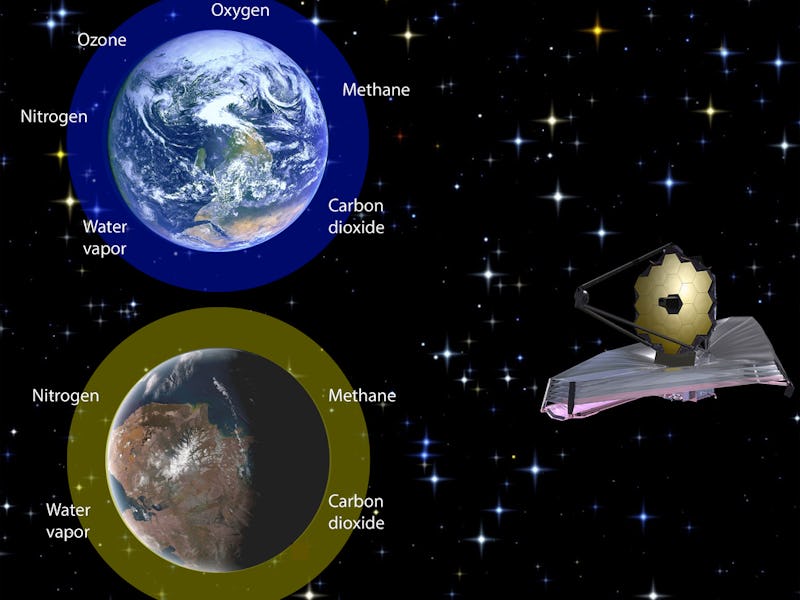Scientists Have a Wild New Way to Find Potentially Habitable Exoplanets

When we think about life in (most) organisms on Earth, we think “oxygen.” I mean, we don’t consciously think about the oxygen keeping us alive — we’re more like passive consumers, breathing steadily into oblivion.
No matter how much you actively think about oxygen, it’s inarguable that our understanding of what’s “alive” and what isn’t is based around this one gas. Life on other planets outside our solar system, however, might not be wired the same way and thus, scientists have proposed hunting for exoplanets with that in mind.
A new study published Wednesday in Science Advances describes how astronomers and telescopes of the future could hunt for “incompatible” gases like methane and carbon dioxide — not oxygen — to make better guesses about biosignatures on exoplanets. The researchers argue that advanced telescopes could one day have the ability to look for “chemical disequilibrium” instead of oxygen in exoplanets’ atmospheres. Chemical disequilibrium exists when two or more of these “incompatible” gases can be found in the same atmosphere.
Future telescopes (right) will observe atmospheres of distant planets for signs of life. Oxygen/ozone reveal life on Earth (top left). For the early Earth (bottom left), the combination of methane and carbon dioxide would provide an alternative biosignature.
The main reason researchers posit it’s not enough to search for oxygen, is that Earth’s atmosphere had almost none of it in the Archean period, which occurred roughly 4 to 2.5 billion years ago. Even in the absence of oxygen within Earth’s atmosphere, microbes thrived, so that throws a wrench in the whole “find the oxygen” plan.
For this reason, the team calculated the chemical disequilibrium of Earth’s atmosphere in three different periods of time when oxygen was scarce — the Proterozoic, Phanerozoic, and Archean periods. Based on this, the researchers concluded that the “coexistence of methane (CH4), carbon dioxide (CO2), and nitrogen (N2) in the presence of liquid water” might have served as a biosignature during the Archaen period, according to a press release shared with Inverse.
This idea will no doubt bring about debate within the astrobiology community, but at the very least, the discourse around it will be fruitful. Besides, when it comes to searching for life outside Earth, we’ll take all the ideas we can get.